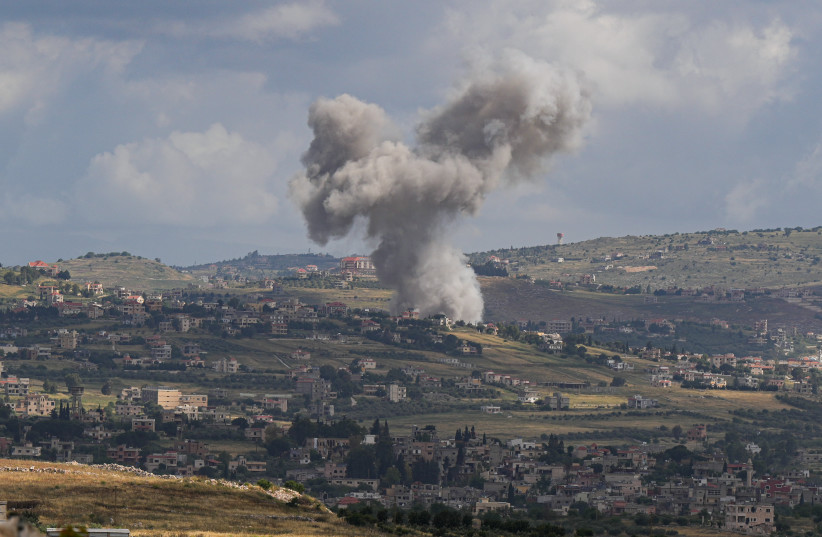IDF chief spokesman: No return to North for evacuees before Sept. 1
IDF Chief Spokesman Brig. Gen. Daniel Hagari said on Wednesday that it would be wrong to promise misleadingly to evacuees from Israel’s border villages with Lebanon in the North that they will be back in their homes by the start of the school year on September 1.
Hagari said, “it is wrong to grasp on to a date which we then later will not be able to stand by.”
The September 1 start of school has been a goal which northern village leaders have repeated in recent months and for which they gained important support from National Unity Party leader Benny Gantz in May.
In fact, one of the reasons that Gantz said he left the government of Prime Minister Benjamin Netanyahu was because the prime minister would not commit to actions to ensure a September 1 return date.
The actions in question are usually a euphemism for substantially ramping up the intensity of IDF military attacks on Hezbollah.

While such a significant Israeli attack might finally deter the Lebanese terror group from attacking the Jewish state, it might also lead to a broader general war, something which Netanyahu seems dedicated to avoiding at nearly all costs.
In any event, Hagari is one the first very senior defense officials to relatively unequivocally abandon September 1 as a realistic date for resolving the conflict with Hezbollah.
Increase in tensions in the North
As if to support Hagari’s sober view of the conflict with Hezbollah, Wednesday showed another increase in rocket fire and overall threats from Hezbollah.
Hezbollah fired around 15 rockets at Kiryat Shmona as well as launched a number of drones into Israel.
IDF forces and defenses shot down many of the threats, while the rest did not harm any Israelis.
The IDF used air power and artillery forces to attack a range of Hezbollah targets in Lebanon, with reports of Hezbollah potentially taking losses.
IDF Chief of Staff Lt.-Gen. Herzi Halevi threatened Hezbollah with advanced capabilities that Israel possesses and about which he said the terror group does not fully know.
There were also reports of IDF attacks on some mix of Iranian proxy militias and actual Syrian military soldiers in Syria on Wednesday, including the killing of one or more of those being attacked.
The IDF did not take credit for the attack, though it has taken credit more often for attacks in Syria since the current war started.
Meanwhile, following a situational assessment by Defense Minister Yoav Gallant and IDF Chief of Staff Lt.-Gen. Herzi Halevi, the IDF announced that as of 18:00 Israel time Wednesday, changes will be made to the Home Front Command’s defensive guidelines.
As part of the changes, certain Gaza border communities can return to hosting educational activities without restrictions, with the number of people allowed for noneducational gatherings to grow significantly to 1,000 people.
Workplaces and essential economic activities can also now proceed without restrictions.
There have been heavy restrictions since Hamas’s October 7 invasion of southern Israel.
Despite these improvements for some Gaza border communities, some, which are still viewed as in more danger or not sufficiently rebuilt, still have more significant restrictions on activities and mass gatherings.
Generally, these new changes in the Home Front Command’s defensive guidelines are intended to ease restrictions on the home front in accordance with the operational situational assessment.
The hope is that easing restrictions, even if only in an incremental way, will allow the reinforcement of agriculture, economy, and education alongside the preservation of human life, the IDF said.
This announcement was one of a series on opening up the southern Gaza border areas, which started back in January, but is still an ongoing process.
Separately, IDF forces continued to battle Hamas in Rafah and in some other areas of Gaza.
The IDF has said that the Rafah operation could be wrapped up in less than two weeks.





Comments are closed.